Georgia Congressman John Lewis at the Lincoln Memorial at the 50th Anniversary of the March on Washington, August 24, 2013. Photo credit: Joseph Sohm/Shutterstock
There is no question that Donald Trump, a former President who is on the ballot next Tuesday, November 5, is not only a man in love with violence, but one who also understands violence as a way to get what he wants. On May 1, 1989, Trump took out a full-page ad in the New York Daily News demanding that New York State execute five Black teenagers who were (as it turns out, falsely) accused of beating and raping a woman in Central Park. In fact, Trump has, himself, repeatedly been accused of sexually assaulting women. Although she later retracted it, Trump’s first wife, Ivana, accused him of raping her and pulling her hair out; and on January 26, 2024, a civil jury convicted Trump of raping journalist E. Jean Carroll.
Trump has, over time, seen extremist militias as allies, and on January 6, 2021, those militias attempted—at his urging—to overthrow a legally constituted election which he lost. He has incited violence against those he perceives as political enemies, particularly immigrants and protesters. He has promised—if he is elected President again—to violently deport 11 million undocumented people living and working peacefully in the United States. He has promised to use the United States military against peaceful protesters.
As Vice President Kamala Harris pointed out last week, as she prepared to face voters in a CNN Town Hall, Trump promises to rule violently, something his rally goers and right-wing media supporters have repeatedly cheered.
But the use of violence against political enemies is, unfortunately, not unprecedented in the United States. Although it is illegal to deploy the military against American citizens as Trump has promised to do, police, hired security, and Ku Klux Klan mobs have assaulted strikers, protesters, and civil rights activists since the 19thcentury. On May 4, 1970, Ohio National Guard troops murdered four peaceful antiwar protesters at Kent State University.
Perhaps the most sustained use of political violence against American citizens has been the deployment of police and deputized mobs against Black Americans. This violence intensified in the 1950s and 1960s as a Black-led, interracial coalition of students and activists across the Jim Crow South organized and demonstrated nonviolently for the right to vote, and to desegregate public accommodations, transportation, and public schools. Politicians unhesitatingly deployed armed men against these brave souls, and refused to intervene when vigilantes beat, murdered, and raped activists.
One of those activists was John Robert Lewis, born in Pike County Alabama in 1940, and the first in his family to attend college. While attending a Nashville seminary, Lewis became involved in sit-ins organized to desegregate restaurants and other public places, and he quickly rose to a leadership position. Lewis eventually became the Chairman of the Student Nonviolent Coordinating Committee, or SNCC, an organization committed to nonviolent protest that organized the Freedom Rides in 1961 and helped to organize the March on Washington in 1963. At the March, Lewis—like many young people today who protest Israel’s War on Gaza—expressed his disillusionment with politics, and the failure of either party to deliver racial justice.
Yet, Lewis’s social revolution bore fruit as politics, and he himself—like many movement activists--eventually became a politician. After President John F. Kennedy was assassinated in November 1963, President Lyndon Johnson used his political capital to pass federal civil rights bills in 1964 and 1965. Lewis then took his activism into government itself and was elected to the United States House of Representatives in 1986, where he became part of the Democratic Party leadership and served the people of the United States until his death in July 2020.
It's hard not to think of Lewis, his fight for justice and against violence, as voters in the United States face their most consequential election in 150 years. I think Lewis’s spirit is watching over Vice President Kamala Harris in this last week of the campaign, and that’s why I invited David Greenberg, the author of John Lewis: A Life (Simon and Schuster, 2024) to come and talk to us about a civil rights icon who helped to transform the Democratic Party that Harris now leads.
Show notes:
There are many secondary sources on Lewis’s branch of the movement, but the best contemporary account of the Student Nonviolent Coordinating Committee is Howard Zinn, SNCC, The New Abolitionists (Beacon Press, 1964.)
David and Claire discuss why the Nashville student movement was both part of, and distinct from, the larger civil rights movement. To get a sense of the dynamism of that local activism, take a look at Kathryn E. Delmez, ed. We Shall Overcome: Press Photographs of Nashville during the Civil Rights Era (Vanderbilt University Press, 2018).
Claire asks David why Lewis became so committed to Israel. David believes it was partly because he was aware of antisemitism from an early age, and partly because Jewish activists were so deeply committed to the movement. Listeners who want to pursue this may wish to read Deborah Schultz, Going South: Jewish Women in the Civil Rights Movement (New York University Press, 2001).
Claire and David talk a lot about Martin Luther King and Bayard Rustin. Listeners who want to follow up may wish to read Jonathan Eig, King: A Life (Farrar, Straus, % Giroux, 2023) and John D’Emilio, Lost Prophet: The Life and Times of Bayard Rustin (Free Press, 2003.)
Claire raises the question of how John Lewis came to understand LGBT Atlantans as part of his coalition. Listeners interested in how LGBT voters became part of the Democratic coalition may wish to read Randy Shilts, The Mayor of Castro Street: The Life and Times of Harvey Milk (St. Martin’s Press, 1982) and Timothy Stewart-Winter, Queer Clout: Chicago and the Rise of Gay Politics (University of Pennsylvania Press, 2016).
You can download this podcast here or subscribe for free on Apple iTunes, Spotify, Google Podcasts, or Soundcloud. You can also keep up with Political Junkie content and watch me indulge my slightly perverse sense of humor on X, Instagram, Threads, YouTube, and TikTok.
If you enjoyed this episode, why not try:
Episode 58, Picturing Asian America: A conversation with historian Mae Ngai about "Corky Lee's Asian America: Fifty Years of Photographic Justice.
Episode 48, “The Bright Sunshine of Human Rights: A conversation with journalist and historian James Traub about liberalism and his book, "True Believer: Hubert Humphrey's Quest for A More Just America."
Episode 43, Where In the World Is Merze Tate? A conversation with historian Barbara Savage about freedom, independence, and her new biography, "Merze Tate: The Global Odyssey of a Black Woman Scholar."
And here’s a bonus: all new annual paid subscriptions include a free copy of my book about political media, Political Junkies: From Talk Radio to Twitter, How Alternative Media Hooked Us on Politics and Broke Our Democracy (Basic Books, 2020.)

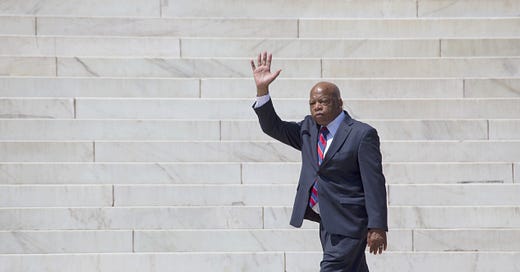


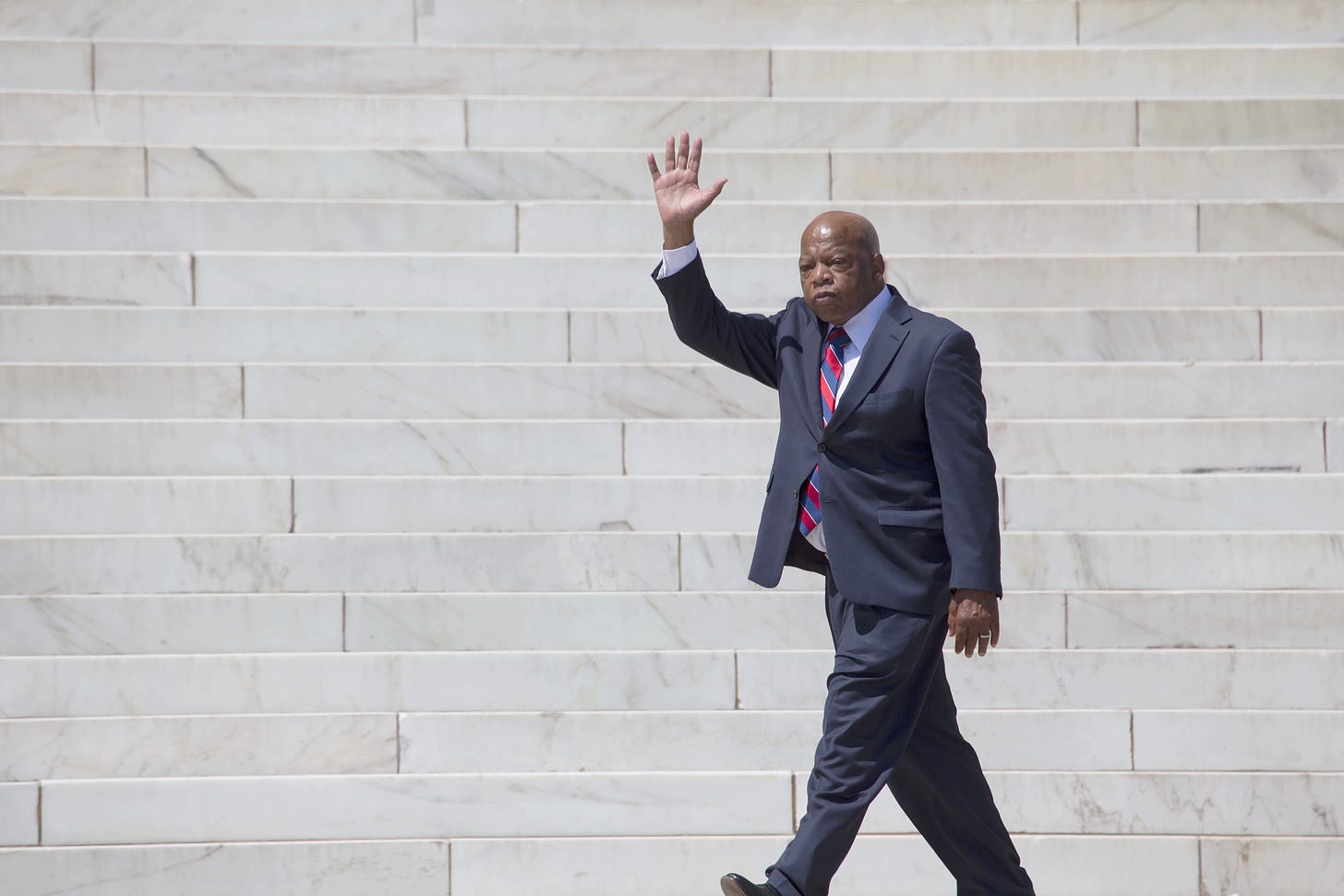



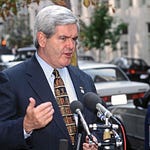

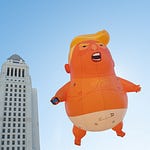
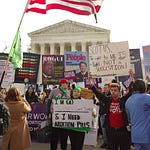
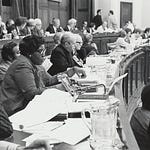
Share this post